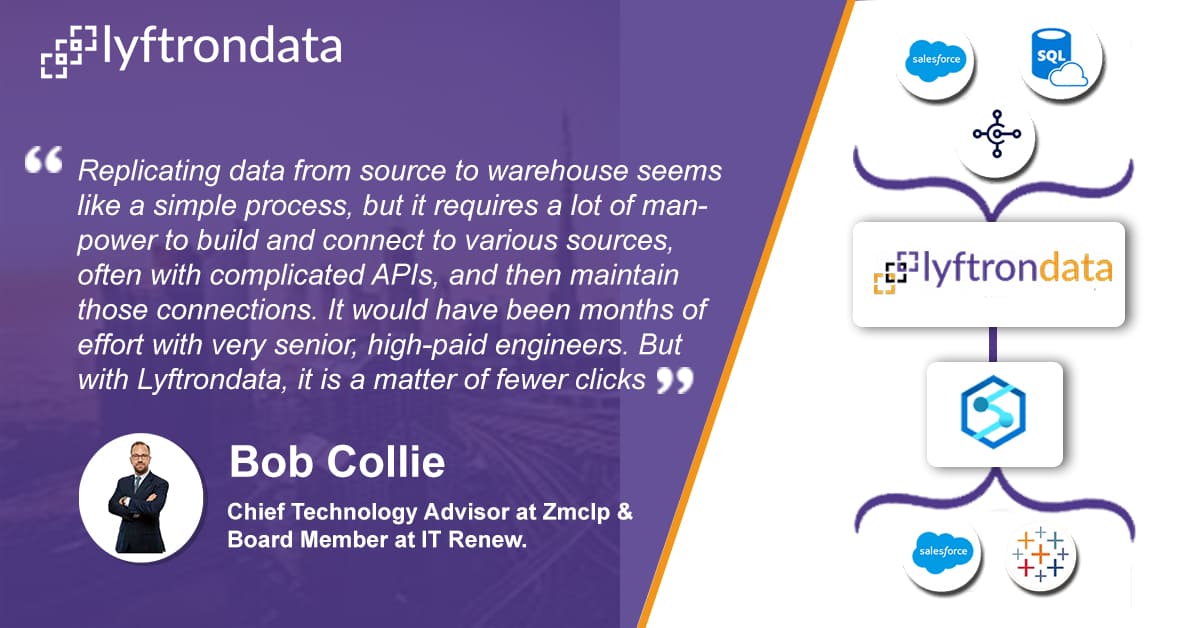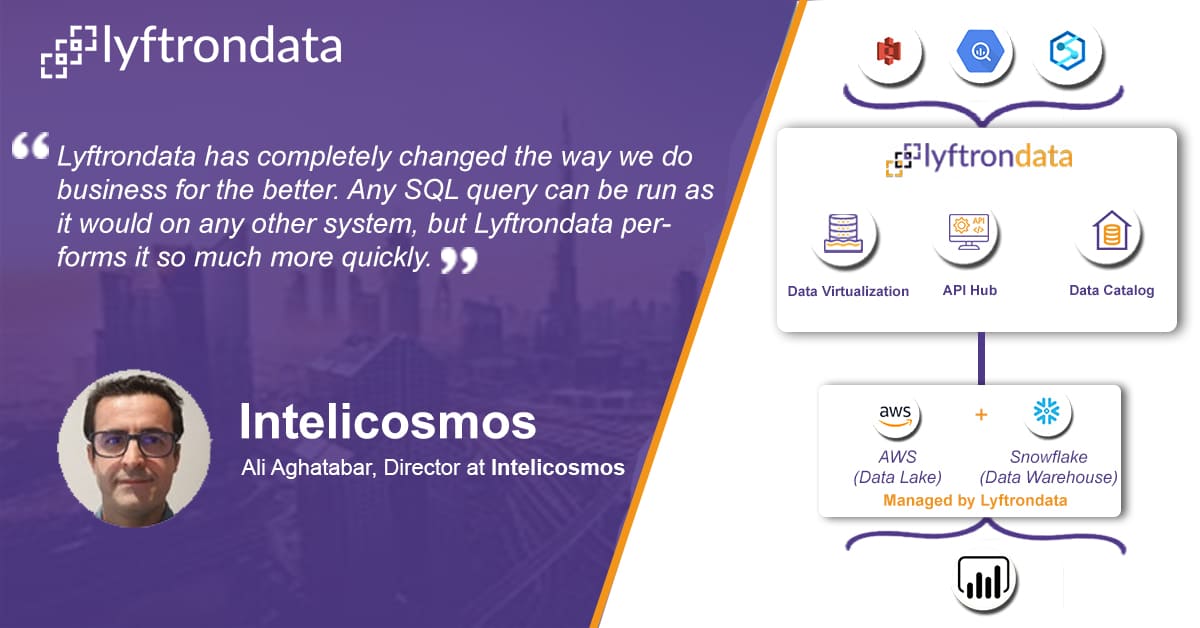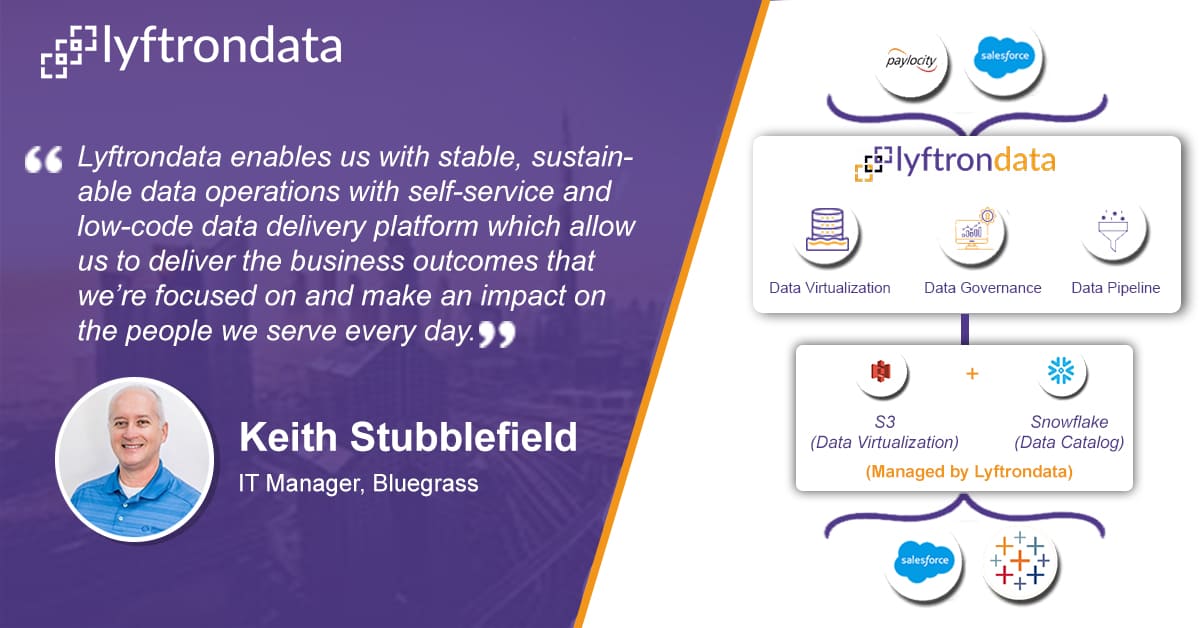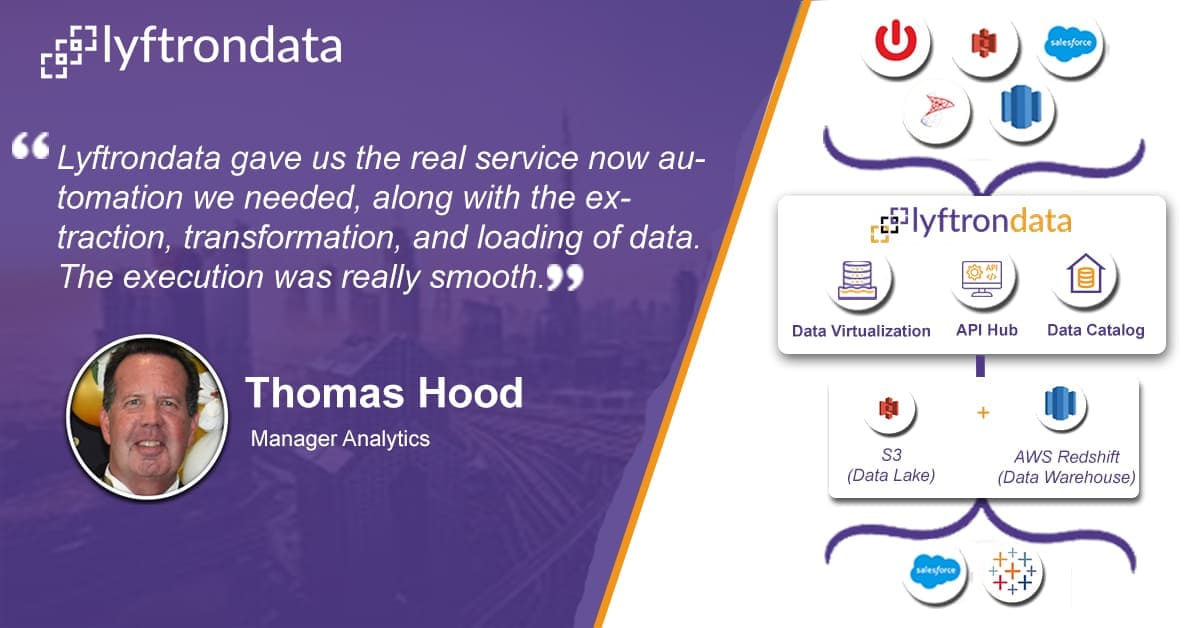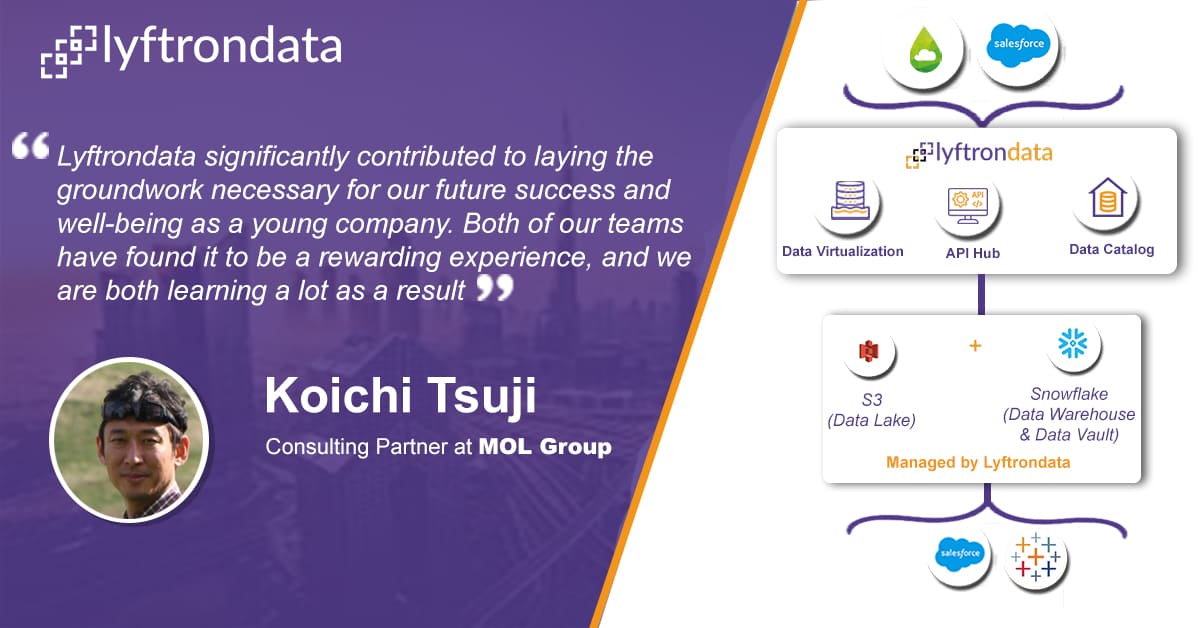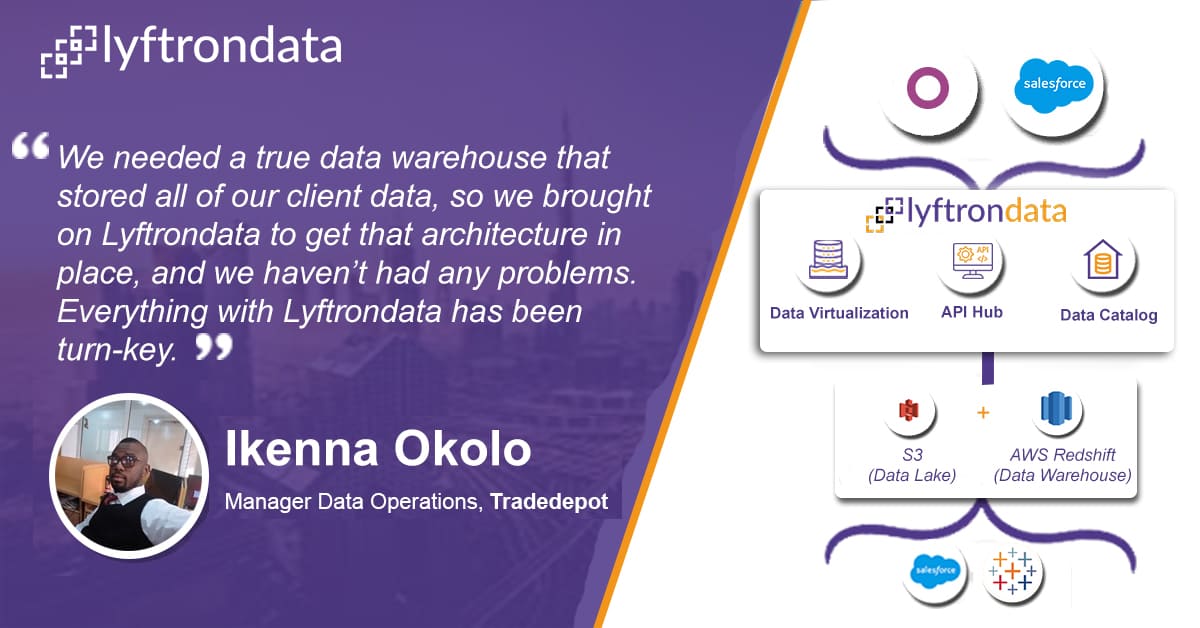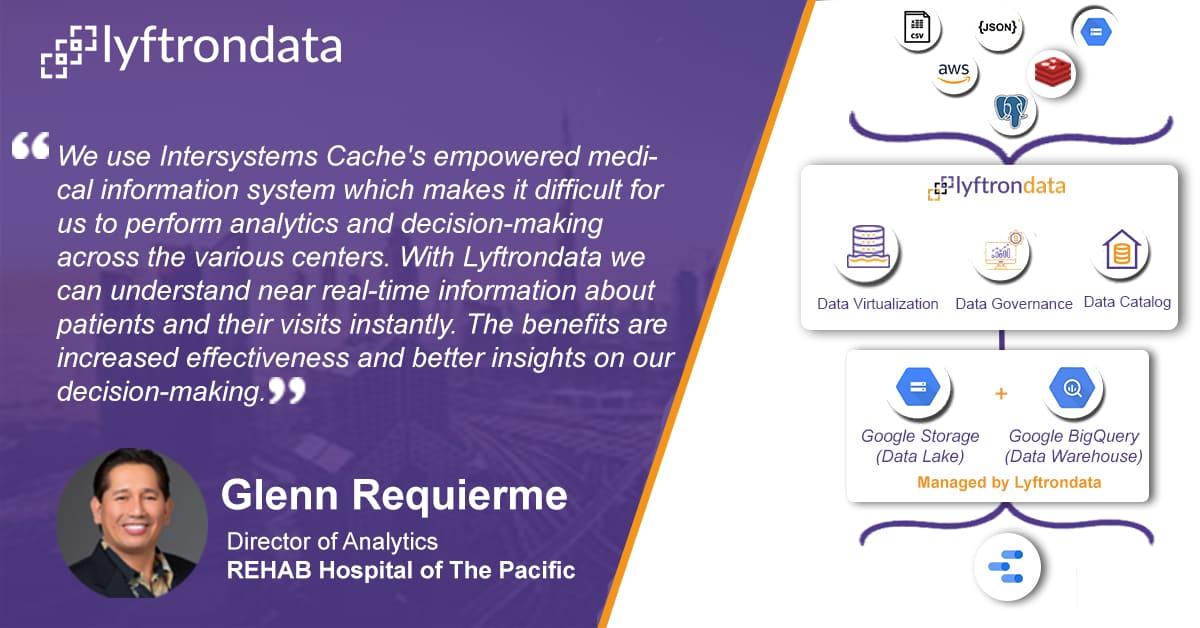200X Acceleration at
1/10th of the cost
Zero
maintenance
No credit card
required
Zero coding
infrastructure
Multi-level
security
Simplify XML integration in
4 simple steps
Create connections
between XML and targets.
Prepare pipeline
between XML and targets by selecting tables in bulk.
Create a workflow
and schedule it to kickstart the migration.
Share your data
with third-party platforms over API Hub

Why choose Lyftrondata for XML Integration?
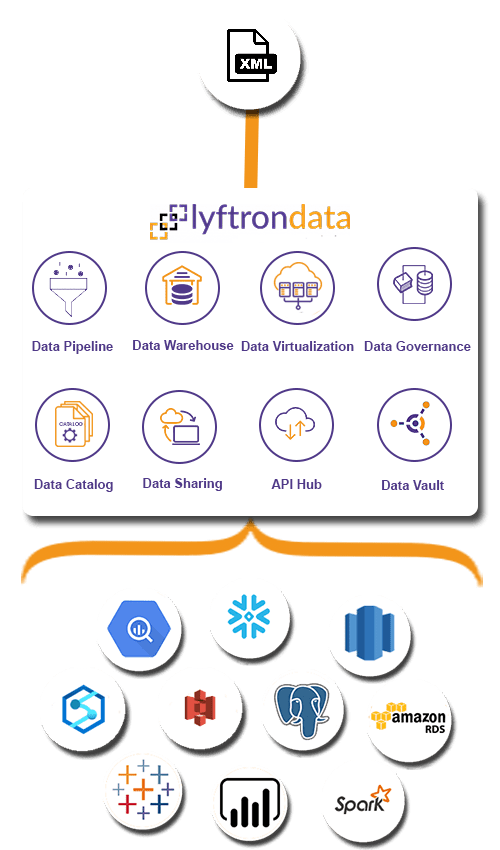

Simplicity
Build your XML pipeline and experience unparalleled data performance with zero training.

Robust Security
Load your XML data to targets with end-to-end encryption and security.

Accelerated ROI
Rely on the cost-effective environment to ensure your drive maximum ROI.

Customer's Metrics
Track the engagement of your customers across different channels like email, website, chat, and more.

Improved Productivity
Measure the performance of your team and highlight areas of improvement.

360-degree Customer View
Join different data touch points and deliver personalized customer experience.
Hassle-free XML integration to the platforms of your choice
Migrate your XML data to the leading cloud data warehouses, BI tools, databases or Machine Learning platforms without writing any code.
Hear how Lyftrondata helped accelerate the data journey of our customers
FAQs
What is XML?
XML (eXtensible Markup Language) is a flexible text-based format used for storing and transporting structured data. It is designed to be both human-readable and machine-readable, making it a popular choice for data interchange between systems, especially in web applications and services.
What are the features of XML?
Self-Descriptive:
XML uses tags to describe data, allowing users to understand the structure and meaning of the data at a glance. Each piece of data is enclosed in a tag, making it clear what the data represents.
Hierarchical Structure:
XML documents are structured in a tree format, allowing for complex data hierarchies. This enables the representation of nested data relationships, which is essential for capturing structured information.
Platform-Independent:
XML is a text format, which means it can be used across different platforms and programming languages without compatibility issues. This makes it a suitable choice for data interchange in heterogeneous environments.
Widely Supported:
XML is supported by many programming languages, databases, and web services, making it easy to integrate into various applications.
What are the shortcomings of XML?
Complexity:
Steep Learning Curve: Understanding and working with XML can be complex, especially for users unfamiliar with its structure and syntax. This complexity can lead to increased development time and potential errors in document creation.
Schema Complexity:
Difficult Schema Management: Managing XML schemas (e.g., DTD or XSD) can be complex and cumbersome. Ensuring that XML documents conform to their schemas can add overhead and complexity to development and maintenance.
Compatibility Challenges:
Interoperability Issues: While XML is designed for cross-platform use, there can still be compatibility issues between different XML parsers and implementations, particularly with namespaces and encoding.
Make smarter decisions and grow your sales with Lyftrondata XML integration





